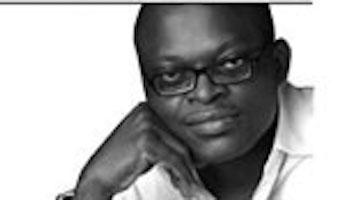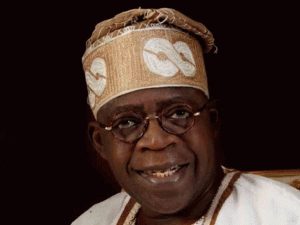The attacks came hard and fast. The criticisms of the nomination of Senator Kashim Shettima as vice presidential candidate of the ruling All Progressives Congress (APC), that is. A few politicians quit the party in protest. A former Secretary to the Government of the Federation (SGF) and long-term promoter of Asiwaju Bola Ahmed Tinubu as APC presidential candidate, Babachir Lawal, denounced his friend and associate for attempting to relegate Christians to second class status in the country. Just as Northern Christian Political Leaders in APC expressed concern that the ticket would be a hard sell, a cross-section of church leaders vowed to direct their congregants not to vote the ruling party. Indeed, since Tinubu had to quickly confirm media reports that he had settled for Shettima as his running mate for the 2003 elections, there has been a storm of protests at what has come to be known as a Muslim-Muslim ticket.
The protest speaks to the crisis of inclusion – religion, ethnic, gender, age – in the nation’s governance systems at all levels. Nigeria being multi-ethnic, and multi-religious, every administration strives to maintain the delicate balance, in appointments to public offices, between the North and the South, and between Christians and Muslims. The strive for balance extends to subnational governments in states and councils; and even between communities in areas where one religion, or nationality, is dominant. Indeed, it even extends to the governance of social clubs and community associations. Every failure to have a balance, every indication there is a major tilt in favour of one religion, or nationality, or region, is met with cries of marginalization, of exclusion, of injustice, of inequity, and of oppression. This usually wets the ground for merchants of hate and mercenaries of chaos to fan the embers of discord and exploit, for personal profit, the nation’s religious and ethnic fault lines.
The Buhari administration, a product of the APC since 2015, either by omission or commission, has not particularly helped matters. Its key appointments, outside of the constitutionally provided one ministerial slot per state, have been heavily lopsided in favour of northern Muslims. Key appointments such as heads of military and security agencies, revenue generating bodies, and strategic ministries like Defence, Power, Finance, Budget and National Planning, Education, Communication and Digital Economy, Humanitarian Affairs and Disaster Management, Justice and Attorney General of the Federation, and Agriculture and Rural Development are given to Muslim north. The more the protests and remonstrations against such brazenly lopsided appointments, the deeper the administration has dug in. With the Muslim leadership of the National Assembly, and the party, thrown into the mix, not a few critics easily pinned the label of Islamisation agenda on the administration.
It is within this context that the leadership of the Christian Association of Nigeria (CAN), the Pentecostal Fellowship of Nigeria (PFN), Northern Christian leaders in the APC, a growing number of Christian clerics, among others, have been up in arms against Tinubu, a southern Muslim, for picking Shettima, a northern Muslim, as his vice-presidential nominee. The Muslim-Muslim ticket has been described as unfair to northern Christians in the party, insensitive to the delicate religious balance in the country, and an electoral hard sell. For the Tinubu team, a Christian running mate did not appear to be on the cards even before the APC presidential nominee emerged. The moment the APC picked its party chairman from the North Central, it was obvious that should the party’s presidential candidate emerge from any of the zones in the South, the vice-presidential nominee would be from either northwest or northeast. Despite the northwest having the highest voting population, the Tinubu team may have settled for the northeast with the strategic calculation of a strong vice-presidential nominee from that axis whittling down the likely zonal electoral support for Atiku Abukakar, the presidential candidate of the People’s Democratic Party (PDP), who is from that zone. Having picked his running mate from the south-south, Atiku has denied himself the disruptive means of denying Tinubu the pleasure of exploiting to the maximum, it-is-our-son (or what has been captured as Awalokan) syndrome.
Tinubu, who since 2007 when he finished his second term as Lagos State governor, has been working and scheming and investing in people and building relationships and political alliances across the country with the goal of becoming the president, was not going to sacrifice whatever would give him electoral advantage in achieving what he once described “a life-long ambition”. In the northwest, the governors and their deputies in all the seven states are Muslims, including Kaduna which has a very strong Christian population. And in the six states of the northeast, only Taraba, a PDP state, has a Christian as governor despite the sizeable Christian population in that zone. Indeed, since this democratic journey began in 1999, outside of Taraba, Christians have been governors in two other states in both the northwest and northeast by accident rather than design. In Adamawa, Bonnie Haruna, then deputy governorship nominee of the PDP in 1999, was elected governor after he replaced Atiku who had moved up as vice-presidential candidate to then Candidate Olusegun Obasanjo. And in Kaduna, Deputy Governor Patrick Yakowa was sworn in as governor in 2009 to replace Namadi Sambo who had been appointed vice president to President Goodluck Jonathan following the death of President Umaru Musa Yar’Adua.
The possible implication of the incessant election of Muslims as governors in 12 out of 13 states of the northeast and northwest, even in states like Adamawa, Gombe and Kaduna where there is sizeable Christian population, is that the Christian politicians from those areas do not have the reach, influence and followership to get the votes. Indeed, it is unlikely the combined forces of immediate past SGF Lawal, his successor Boss Mustapha, Senator Grace Bent and other non-Christian politicians in Adamawa APC could break Atiku’s control of the politics of the state. If Tinubu therefore believed he has a brighter chance of winning the 2023 polls by pairing with another Muslim, he has a right to his choice. There is really no need for all the hoopla concerning that choice.
There is still an electoral contest on the way. There is no indication, with Buhari’s disastrous performance in the last seven years on the platform of APC, that Nigerians would necessarily be inclined to elect another presidential candidate from the ruling party in 2023. As the just concluded governorship election in Osun State has shown, with the PDP candidate Ademola Adeleke trouncing incumbent APC Governor Gboyega Oyetola, there’d be much more to voters’ electoral choices than religious sentiments. I can understand the protest of the Northern Christian Leaders in APC; it is the affairs of their party, and they have a duty to sell their candidate. I, however, fail to understand the unnecessary dissipation of energy by Christian organisations, shepherds of the flock, and church leaders on the matter. They have been going on as if Tinubu and Shettima were already president and vice president. Yet, there is another presidential ticket in strong contention with the APC’s, and at least two others that might spring some surprise or disrupt expected political order.
In serious democracies, voters would naturally punish a party whose government has presided over such ruinous policies the APC administration has implemented. And if INEC’s conduct of the recent governorship polls in Ekiti and Osun were an indication of the electoral body’s determination to preside over a free and fair election in 2023, there are bound to be changes in the demographics and status of the voting population. It looks like more and more people who couldn’t be bothered to participate in the fraudulent elections of the past may weigh in, and those are people whose votes are not in market for trading. Therefore, rather than throw unending emotional tantrums, northern Christians and their sympathisers in the South should go strategize on how to make the APC pay. This may be their only opportunity to show politicians, particularly the northern political players, the force of their voting power.

Northern Christians should perhaps not limit their fight for justice, equity and inclusion to APC alone. They may also want to look inwards at the governance structures in Christian bodies that represent their interests. The CAN, for instance, since inception in 1976 has had seven presidents and all, except John Cardinal Onaiyekan, are from the South. And Onaiyekan is from Kogi State in the north central and has served mostly in Kwara, also in north central, and Abuja, the nation’s capital. The Catholic Bishops Conference of Nigeria, since it was established in 1958, although has had three presidents from the North (Onaiyekan, Ignatius A. Kaigama and Gabriel Ganaka) there has been only one from the northeast – Kaigama from Taraba, a state with dominant Christian population. The other two are from north central. And the PFN since it was set up in 1985 has never had a northern president. Rev. Chris Okotie, one of its estranged members, was so displeased with the PFN’s governance structure that he once described the body as “a clannish religious enterprise”.
Going forward, however, perhaps what the country needs is constitutional guarantee of inclusion and equity and fairness and justice for minorities of all types – ethnic, religion, sex, etc. That way, there would be less acrimony as matters would not be left to the wiles and whims of politicians.














